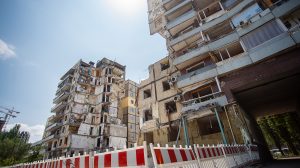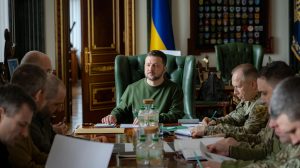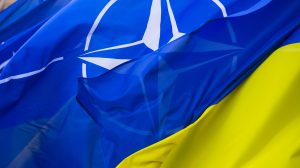Central Europe
Romania’s President Klaus Iohannis signed a Washington-backed bill last Friday that effectively bars China and Huawei from taking part in the development of its 5G telecommunication networks, on security concerns. The centrist government of Prime Minister Florin Cîțu, an ally of Iohannis, approved in April a ban on Chinese-controlled firms, and parliament subsequently rubber-stamped it. The bill stems from a 2019 US-Romania memorandum under which the two governments had said: “as part of a risk-based security approach, careful and complete evaluation of 5G vendors is necessary,” with those controlled by a foreign government and lacking a transparent ownership structure ruled out.
Hungary’s parliament on Tuesday passed a law banning gay people from featuring in school educational materials or TV shows for under-18s in a new attack on LGBT+ rights. The national assembly passed the legislation by 157 votes to one, after MPs of the ruling Fidesz party of Prime Minister Viktor Orbán ignored a huge demonstration in Budapest on June 14, as well as last-minute pleas by human rights groups, who have likened to the new laws to Russia’s 2013 law against “gay propaganda”. Despite a boycott of the vote by some opposition politicians, the outcome was never in doubt, as Fidesz has a large majority and the plans were supported by the far-right Jobbik party.
The European Union’s top court said on Tuesday that Czechia is pressing for Poland to be fined five million euros for every day it ignores the court’s order last month to immediately shut a lignite mine near the two countries’ border. The announcement by the European Court of Justice came as Poland is in talks with the Czech government to settle the years-long spat over the Turów mine out of court. The court said on Twitter that the Czechs have asked it to impose a daily five million euros penalty on Poland “for not having immediately ceased” lignite mining activities in the Turów mine. On May 21, the court issued a temporary injunction telling Poland to close Turów immediately, pending the full verdict which, however, can take many months.
Slovakia’s Supreme Court has overturned the acquittal of a high-profile businessman accused of masterminding the murder of investigative journalist Ján Kuciak, and ordered a retrial. Marián Kočner was acquitted last year by the specialised criminal court in Pezinok of ordering Kuciak’s killing in 2018, which sent shockwaves through Slovakia and triggered the largest protests in its independent history. Following an appeal by prosecutors, Slovakia’s top court ruled on Tuesday that the acquittal of Kočner and Alena Zsuzsova, an associate of his who was accused of helping arrange the killing, should be cancelled as the court in Pezinok had not adequately considered all available evidence. A new trial will now be held in the specialised criminal court.
Bulgaria’s Finance Ministry on Monday published a list of 33 companies and 21 individuals connected to controversial figures in the country’s business and political life who were sanctioned by the US Treasury on June 3 for alleged involvement in corrupt activity. The Finance Ministry said the companies and individuals might be affected in the near future by the US’s Global Magnitsky Human Rights Accountability Act, which freezes the assets of people linked to corruption and human rights abuses and bars them from entering the US. “These people are related to those who have been sanctioned and as such, there is a great risk in working with them. They do not have the right to apply for public procurements and state-owned enterprises must refrain from working with them,” caretaker Finance Minister Asen Vassilev told media.
A town in northern Croatia hit hard by rural depopulation is selling its abandoned houses for one kuna (16 US cents) in a bid to attract new residents, albeit with some big conditions. Legrad, once the second-biggest population centre in Croatian territory, has suffered a steady decline since the disintegration of the Austro-Hungarian empire a century ago, when new borders left it sidelined. So far, 17 properties have been sold. The municipality says it will pay 25,000 kuna towards any refurbishments needed, and for new residents wishing to buy a privately-owned home, the town will cover 20 per cent of the price or up to 35,000 kuna, the mayor said. The key conditions for individuals or couples who want to settle in Legrad include that they must be financially solvent and under the age of 40. They also need to commit to staying at least 15 years.
A 57-year-old man has been killed by a brown bear in central Slovakia, in what the state forestry company said could be the first confirmed deadly attack by a wild bear, whose population has tripled in 20 years. “An autopsy confirmed today that the man from Liptovska Luzna died from injuries caused by this predator,” the forestry company, Lesy Slovenske Republiky, said on Facebook. Bears are common in Slovak mountains, and their numbers have swollen to an estimated 2,760 last year from fewer than 900 two decades ago, said the forestry company, which has argued for legal hunting of bears to manage their population.

Eastern Europe
Russian President Vladimir Putin emerged from closed-door talks with US President Joe Biden on Wednesday claiming to be committed to help solve the crisis in Ukraine that he fomented, but he dismissed any notion Russian arms and personnel are the reason the war persists. Putin also refused to address the possibility of Ukraine’s entry into NATO while blaming American exercises in Europe for his own troop buildup of 100,000 soldiers on Ukraine’s eastern border. The much-anticipated summit meeting between Biden and Putin was shorter than many anticipated, clocking in at two-and-a-half hours. Both acknowledged Ukraine was a main issue, with the Russian president saying journalists were “dancing around” the subject in many questions he fielded.
European Union member states this week agreed to impose fresh sanctions on Belarus on Wednesday over last month’s forced diversion of a Ryanair flight and arrest of dissident journalist Roman Protasevich, according to diplomats cited by news agencies. The sanctions have been approved by EU ambassadors and are expected to be adopted by the bloc’s foreign ministers next week. Reuters cited a diplomat as saying the new measures targeted at least seven individuals linked to the Belarus aviation sector. The EU has already blocked Belarusian airlines from flying to the bloc and stopped carriers from its 27 nations from using Belarusian airpace.
Belarusian health workers who participated in anti-government demonstrations or spoke out against official accounts of protesters’ deaths and injuries, are facing brutal reprisals from the authorities, Amnesty International said this week. Despite chronic staff shortages, dozens of health workers have been dismissed amid the government’s crackdown on critics, with many barred from medical employment, while countless others have faced threats and prosecution. “Belarusian health workers have been on the frontline of the country’s human rights crisis, treating protesters with injuries and exposing the government’s attempts to downplay the bloodshed. Many have paid a heavy price for their integrity, losing their livelihoods, and in some cases their human rights,” said Bruce Millar, Amnesty International’s deputy director of campaigns for Eastern Europe and Central Asia.
Azerbaijan said on Saturday it had handed over 15 Armenian prisoners in exchange for a map detailing the location of landmines in Agdam, a region relinquished by ethnic Armenian forces as a part of a deal to end a six-week war last year. The prisoner exchange deal, the first agreement of its kind between the two countries, was announced by the Azeri Foreign Ministry. Prisoners of war are a key issue for Armenia, while landmines continue to inflict casualties in Azerbaijan. Armenians will vote in a parliamentary election on Sunday, the second snap poll in less than three years.
Meanwhile, Turkish President Recep Tayyip Erdogan has visited a part of Nagorno-Karabakh under Azerbaijan’s control along with one of the seven districts adjacent to the breakaway region. Erdogan’s visit, which was condemned by the Armenian Foreign Ministry as an “an outright provocation against regional peace and security,” came a day after he met with US President Joe Biden on the sidelines of a NATO summit in Brussels.
North East Europe
Estonia said on Wednesday that two Russian fighter jets have violated its airspace, in what it claimed was the fourth such incident this year. Two Russian Sukhoi Su-35 fighters entered the Baltic country’s airspace in the vicinity of Hiiumaa, a Baltic Sea island belonging to Estonia, without permission and spent less than one minute there Tuesday morning, Estonia’s military said in a statement. It added that the transponders on the Russian planes weren’t switched on, they hadn’t filed a flight plan and there was no two-way radio communication with the Estonian air traffic service. The Russian Embassy’s charge d’affaires was summoned to the Estonian Foreign Ministry and handed a note on the incident.
Lukiškės prison, one of the most notorious buildings in Vilnius, the capital of Lithuania, has reopened as a cultural cluster after being closed as a jail in 2019. The century-old prison, which attained global recognition after featuring as a shooting location for Netflix’s enormously popular series Stranger Things, has now been repurposed to host cultural activities, concerts, festivals, and exclusive tours for at least two years. The new entertainment hub, titled Lukiškės Prison 2.0, was opened by the band Solo Ansamblis, who performed to an audience of over 1,000 spectators for the first time in nine months due to persisting lockdowns.
South East Europe
Serbian President Aleksandar Vučić and Kosovo Prime Minister Albin Kurti met in Brussels on Tuesday to resume European Union-led talks designed to normalise relations between the two countries. It was the first time the two leaders had met since a US-brokered agreement on economic normalisation was signed at the White House last autumn. The meeting ended up being short, with both sides offering somewhat different accounts of how it went. Both, however, noted the lack of any real developments. “I’ve never attended a meeting like this,” said Vučić. “The man came to ask me: When are you going to recognise independent Kosovo? I told him, ‘Never,’ and he exploded.” Kurti said the Kosovo had in fact been “constructive” in the talks.
European Union countries have reached an agreement to ease entry restrictions for travelers from the United States and seven other nations and territories, including Albania, North Macedonia and Serbia, officials said on Wednesday. The change means people from those places should have an easier time entering the EU. However, it will still be up to individual member states to decide whether to impose additional requirements, such as a negative Covid-19 test or mandatory quarantine period. The EU’s 27 member states, with the exception of Ireland, banned nonessential travel at the start of the pandemic in an effort to stop the coronavirus from spreading. Non-EU countries Norway, Liechtenstein, Switzerland and Iceland also took part in the ban.
Montenegro has denied it has plans to sell state property to ease its debt burden, a local newspaper said on Sunday, after a Reuters report quoted senior officials as saying the tiny Balkan country was preparing the way for asset sales. The Reuters report also quoted a senior European Union official as saying Montenegro was looking to raise cheap EU credit in a plan – to be spearheaded by state lenders from France, Germany and Italy – to reduce its financial reliance on Chinese debt. In 2014, Montenegro borrowed 944 million US dollars from China to fund a stretch of a highway to the border with its neighbour Serbia.
Greece has complained to UEFA over an acronym used by North Macedonia at the European Football Championships. The logo of the country’s football federation (FFM) appeared on the country’s shirts during their opening group stage match against Austria. But Greek ministers have stated that North Macedonia cannot play under the acronym “MKD” and must use another term in line with the Prespa agreement, which changed the constitutional name of the former Yugoslav republic. Foreign minister Nikos Dendias sent a letter on Sunday to his counterpart in North Macedonia, requesting the team comply with the agreement. Dendias urged North Macedonia to use another acronym that corresponds to its official name such as “NM” (North Macedonia) or “RNM” (Republic of North Macedonia).
Central Asia
Lawyers for Uyghur groups have given new evidence to the International Criminal Court (ICC) that allegedly shows the Tajik government is cooperating with Beijing to send Uyghurs to China, where they face detention and often much worse. Tajikistan is not the only country targeted in the complaint submitted to the ICC’s Office of the Prosecutor. Cambodia is reported to be another country that allegedly succumbed to Chinese pressure to detain and illegally extradite Uyghurs. Numerous reports have claimed that the Chinese authorities have put more than one million Uyghurs and thousands of other mostly Muslim indigenous minorities in so-called reeducation camps, located mainly in the Uyghurs’ traditional homeland in the Xinjiang Uyghur Autonomous Region in western China.
Former Kyrgyz President Sooronbai Jeenbekov’s ex-deputy chief of staff and close ally, Almambet Saliev, has been detained on suspicion of illegal enrichment. Saliev was detained on June 16, the State Committee for National Security (UKMK) said in a statement on June 17. According to the statement, Saliev allegedly used his position to interfere in the country’s judiciary and law enforcement apparatus in order to lobby on behalf of private companies. Also, the UKMK said, Saliev was suspected of obtaining properties whose value exceeded his official sources of income.
Turkmenistan’s autocrat leader said this week that his country’s debts to China for a multi-billion-dollar gas pipeline and another gas project had been paid off “in full”. China has invested billions in the development of Turkmenistan’s gas industry, establishing itself as the isolated country’s number one destination for exports. Beijing’s most important projects in the country are the pipeline that begins in eastern Turkmenistan and reaches China via Uzbekistan and Kazakhstan and a multi-stage development project at Galkynysh, the world’s second-largest gas field. President Gurbanguly Berdymukhammedov said Turkmenistan had paid off loans provided by China for the pipeline and the first stage of Galkynysh’s development “on time and in full”, according to a report in the Neutral Turkmenistan newspaper.
Unlike many news and information platforms, Emerging Europe is free to read, and always will be. There is no paywall here. We are independent, not affiliated with nor representing any political party or business organisation. We want the very best for emerging Europe, nothing more, nothing less. Your support will help us continue to spread the word about this amazing region.
You can contribute here. Thank you.








Add Comment